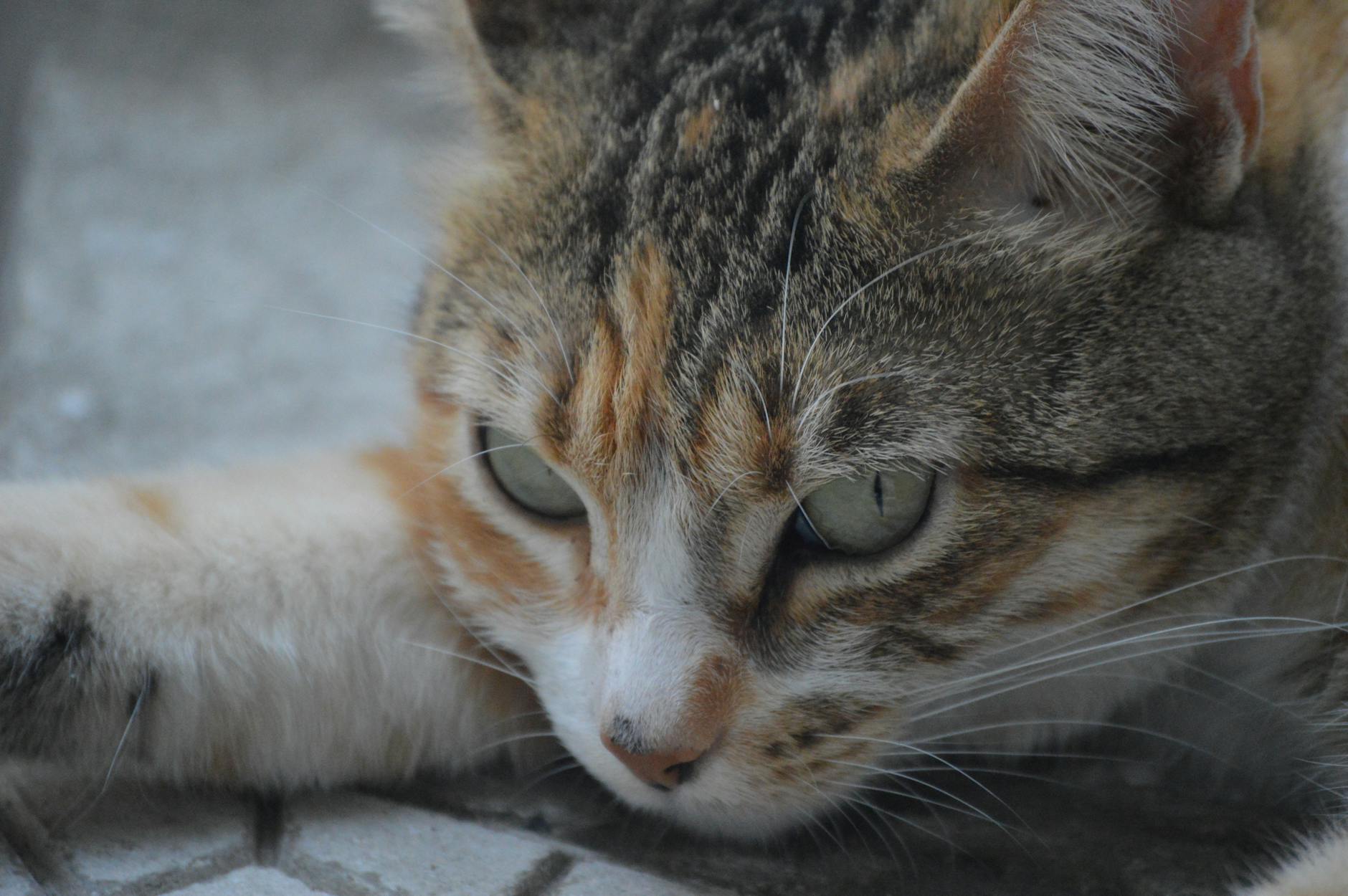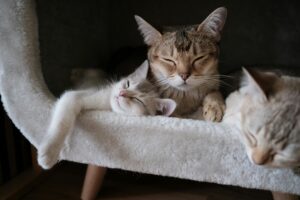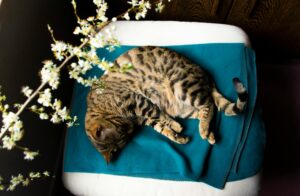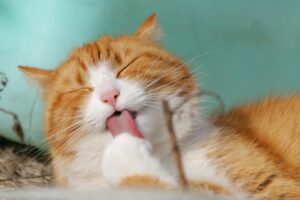Male calico cats are among the rarest and most fascinating cats in the world. Their unique genetic makeup, striking coat patterns, and rarity make them a topic of intrigue for cat enthusiasts and scientists alike. This article delves into the world of male calico cats, exploring their history, genetics, breeds, personality traits, and the considerations for owning one.
What Are Male Calico Cats?
Understanding Calico
First, it’s important to clarify that “calico” refers to a color pattern, not a specific breed. The calico pattern is a tri-color combination, typically orange, black, and white, though the shades and proportions may vary. This distinctive look can occur in many breeds, such as the American Shorthair, Persian, Maine Coon, and Japanese Bobtail.
Why Are Male Calico Cats So Rare?
The Genetics Behind the Calico Pattern
To understand why male calico cats are so uncommon, we need to dive into genetics. The genes responsible for a cat’s coat color are located on the X chromosome.
- Female Cats (XX): Female cats have two X chromosomes, which allows them to carry genes for both orange and black fur. The white patches seen in calicos are the result of another gene unrelated to the X chromosome.
- Male Cats (XY): Male cats have only one X chromosome, meaning they can typically display only one color—either orange or black, but not both.
For a male cat to be calico, he must have an extra X chromosome (XXY). This rare genetic anomaly occurs in about 1 in every 3,000 male cat births.
Health Issues in Male Calico Cats
The genetic anomaly that gives male calicos their rare coat pattern also predisposes them to certain health issues. Most male calicos have Klinefelter’s Syndrome, a condition that results from having an extra X chromosome.
Potential Health Concerns
- Sterility: Almost all male calico cats are sterile and unable to reproduce. While this doesn’t affect their quality of life, it does prevent them from being used in breeding programs.
- Higher Risk of Health Issues: Klinefelter’s Syndrome can lead to other health problems, including:
- Weakened immune systems.
- Increased risk of testicular cancer.
- Susceptibility to weight gain and associated conditions like diabetes.
- Joint and bone issues.
The Importance of Neutering
Even though male calico cats are sterile, neutering is still essential. Neutering prevents:
- Testicular cancer: Male calicos, like all male cats, can develop this condition.
- Territorial Spraying: Unneutered male cats may mark their territory with pungent urine.
Breeding and Show Status
Breeding Male Calicos
Because male calicos are almost always sterile, they cannot be used to breed more calico cats. Even if a male calico were fertile, the calico pattern itself is not inherited in a predictable way, as it depends on random genetic expression.
Male Calicos in Cat Shows
Most cat registries do not accept male calico cats as show animals. This is partly due to their rarity and the fact that they cannot be used in breeding programs to promote specific breeds or patterns.
Personality Traits of Male Calico Cats
Just like their female counterparts, male calicos don’t exhibit a specific set of personality traits tied to their coat pattern. Their temperament is influenced by their breed, upbringing, and individual experiences rather than their rare calico status.
That said, owners of male calico cats often describe them as:
- Affectionate: Many male calicos are known to bond closely with their human companions.
- Playful: Their quirky and rare nature often comes with an equally unique personality.
- Independent: Like most cats, they value their space and enjoy periods of solitude.
Breeds That Can Have Male Calico Cats
Because calico is a pattern and not a breed, male calicos can appear in various breeds. Here are a few common ones:
- American Shorthair: Known for their friendly and adaptable nature.
- Persian: Famous for their luxurious coats and calm demeanor.
- Maine Coon: Gentle giants with a playful and affectionate side.
- Japanese Bobtail: A breed historically associated with good luck in Japan.
- Exotic Shorthair: With their plush coats and round faces, they are the short-haired version of Persians.
Owning a Male Calico Cat: Costs and Considerations
How Much Do Male Calico Cats Cost?
Due to their rarity, male calico cats can be quite expensive. Prices depend on the breed, the cat’s health, and the breeder. While there’s no fixed price, you could expect to pay anywhere from $1,000 to $2,000 or more for a male calico, particularly if they are part of a desirable breed.
Considerations for Potential Owners
- Health Costs: Given their predisposition to certain health issues, regular veterinary care is crucial for a male calico cat.
- Unique Care Needs: Understanding their genetic makeup and potential vulnerabilities will help ensure a long and healthy life.
Fun Facts About Male Calico Cats
- Luck and Superstition: In many cultures, male calico cats are considered symbols of good fortune. For example, in Japan, the “maneki-neko” (beckoning cat) is often depicted with calico coloring.
- State Cat: The calico cat is the official state cat of Maryland, chosen for its orange, black, and white colors that mirror the state flag.
- Unintentional Celebrities: Male calicos often gain fame in their local communities simply because of their rarity.
Conclusion: A Rare Breed
Male calico cats are a genetic marvel, combining beauty and rarity in a way that captures the hearts of cat lovers around the world. While they may face unique health challenges, proper care and attention can help them lead happy and fulfilling lives. Whether you’re lucky enough to own one or simply admire them from afar, male calico cats remind us of the incredible diversity and wonder of the feline kingdom.
If you ever meet a male calico cat, consider it a once-in-a-lifetime encounter with one of nature’s rarest treasures.




Pingback: Calico Cats: Are They Always Female, And Do They Have A Unique Personality?
Pingback: Explain Reasoning For Calix To Be A Male Calico Cat
Pingback: Orange Tabby Cats: A Guide to the Lovable and Lively Feline
Pingback: Ginger Cats: Everything You Need to Know